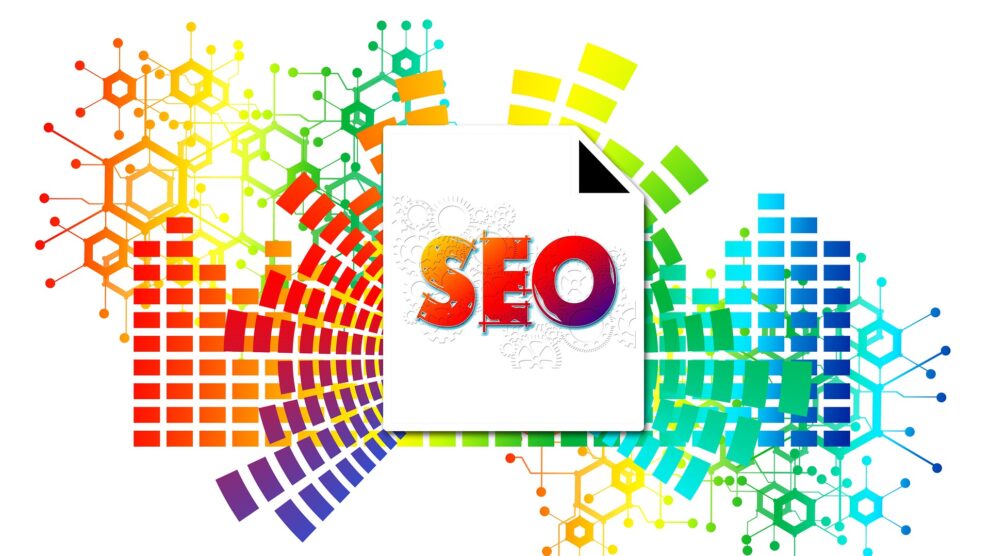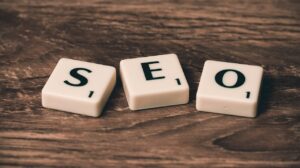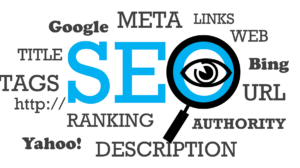Understanding the meaning and importance of SEO is the difference between digital marketing success and failure. Mastering SEO creates potential for your business to succeed in the online world, beating out your competition and gaining new business.
The internet is used by many people every day, especially to shop. Last year around $2.3 trillion was generated in online sales, and this number is expected to hit $4.5 trillion per year by 2021. So there is a lot of competition. Great SEO gives you the best chance possible to ensure that your products and services are seen, or more poignantly, found by the people who are looking for them.
What exactly is SEO?
Search engine optimization or SEO is the rules by which you optimize your website to improve search engine rankings. They are also a way to make your site more user- friendly and easier to navigate.
There are a number of rules or guidelines that fall under SEO, and they are constantly evolving, meaning you need to keep your finger on the pulse or enlist the help of someone who can to ensure your site is correctly optimized.
The importance of SEO
When someone is looking for something or has a question, they usually hit the search engines. Millions of potential customers use them per day, and SEO will help your business utilize this tool.
Search engine optimization will:
- Help your rankings. The majority of search engines users click on the top 5 suggestions in the search results pages
- Improve the user experience of your site
- Establish trust with the consumer. People listen to search recommendations
- Help the social promotion of your website. Good word of mouth spills over to social media platforms
- Put you ahead of the competition
Where to start
The order of results in a Google search is based on a series of algorithms which consider a number of factors. Optimizing your website increases your chances to rank higher via three main stages:
- Technical SEO
- On-site SEO
- Off-site SEO
Technical SEO
Technical SEO relates to the settings of your website as opposed to the content. Technical SEO is the one aspect of SEO which is somewhat set and forget. This encompasses things like crawling and indexing which can negatively impact your rankings.
On-site SEO
This element is more content focused, aimed at providing search engine crawlers with ways to understand your content. This is where site structure, keywords, headings, internal links, images, and various other techniques come into play.
On-site SEO will improve usability and encompasses content optimization.
Off-site SEO
More commonly known as link building, off-site SEO is a form of promotion for your site. Search engine algorithms look for the best pages by relevance to the initial search. The best options appear in the first positions, and good options are determined partly by the number of incoming links, known as backlinks.
Backlinks are like a badge of trust if coming from well-known and trusted sites. The flip side of this being that paid links have an adverse effect as they violate the Google guidelines.
How to obtain more backlinks
The creation of good quality content is always your best bet, across all SEO rules. Good content leads to natural links which is followed by high rankings and greater traffic.
Learning the skill of SEO
Once you understand the different concepts of SEO, trial and error is the best way forward. You will need to apply various techniques to your website and monitor your rankings.
There are a range of sources to assist, especially at beginner levels, and you may wish to use an SEO Checklist to ensure that you have optimized all necessary elements.
Local SEO
If you have noticed businesses that rank high in the Google search with an address and star rating, this is as a result of local SEO via the Google My Business page.
The best way to maximise the Google My Business page is by doing the following:
- Keep business information consistent (name, contact details)
- Have up to date photos
- Be proactive with reviews
- Activate the messaging feature so customers can easily contact you
- Align your primary category with the products or services you offer
It is also a good idea to utilize the insights section which reports on the impressions and clicks that your Google My Business page generates. This is no different to how you should approach all reporting, with close monitoring to be able to tweak and improve your strategies and metrics.
Is SEO marketing?
The answer is essentially yes; however, it should be noted that SEO is a part of your inbound marketing strategy. It works in conjunction with things like social media promotion, content strategy, and other elements.
Once again, it all boils down to good content, SEO and other inbound marketing approaches are basically worthless if the content is terrible. SEO is the boost.
If you aren’t using SEO, start now
Search engine optimization or SEO is vital for success in the online world. Search engines and high rankings should be your best friend. The difference they will make to the visibility, and in turn, the success of your business is staggering.
A good SEO approach will drive more traffic to your website, blog or store gaining more customers, converting leads to sales and helping your business to grow, which should be the goal of every company.





